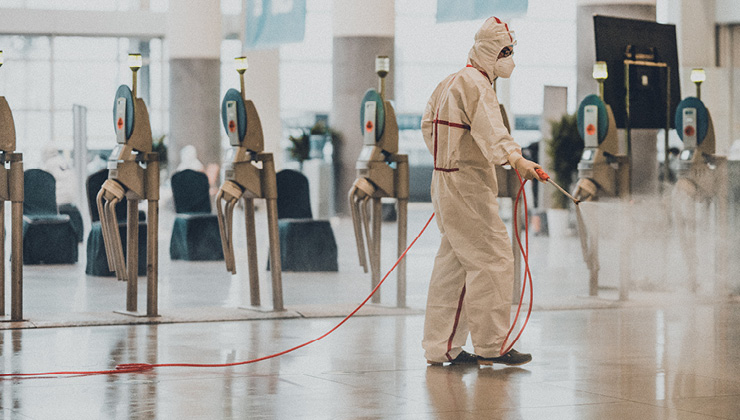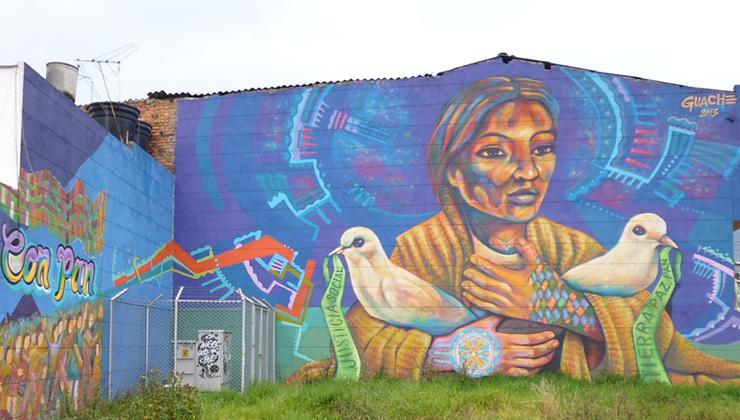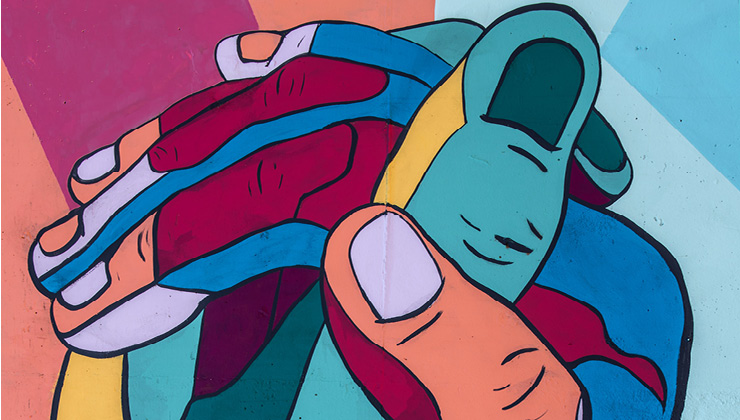Lihini Ratwatte discusses Sri Lanka’s response to the pandemic, and why women’s rights and women’s leadership should be at the forefront of development and recovery.
Crises and conflicts have profound impacts on women and girls, often amplifying pre-existing inequalities. During times of conflict women and girls may experience a lack of security, loss of livelihoods, vulnerability to gender-based violence, and an increased burden of unpaid care work. A crisis like COVID-19 can threaten to exacerbate such vulnerabilities, whilst reversing significant achievements in women’s rights by decades. Against this backdrop, I emphasise why women’s equal participation and leadership is vital towards an inclusive post-pandemic recovery in Sri Lanka.
In Sri Lanka, women have been at the frontlines of COVID-19 as essential workers and healthcare providers, yet their voices in key decision-making roles remain largely absent. This is observed in the low percentage of women represented in COVID-19 response teams appointed at varying stages of the pandemic in Sri Lanka, despite the pandemic impacting women and girls in a disproportionate manner due to pre-existing gender inequalities and deep-rooted discriminations.
Having emerged from a 30-year armed ethnic conflict, Sri Lanka’s ongoing efforts to draft and operationalise a National Action Plan on Women Peace and Security (WPS NAP) indicates a positive trajectory towards delivering the women, peace and security (WPS) agenda, despite facing setbacks within the context of COVID-19. The challenges of COVID-19 have prompted governments across Asia and the Pacific – including here in Sri Lanka – to take emergency actions that have negative implications for peace and security, and the rights of women and girls. UN Women’s research indicates that the enactment of national emergency powers, the introduction of military checkpoints and lockdowns, closed borders, and restrictions on citizens’ movement and speech, all mirror a governance context similar to that of a conflict setting.
It is evident that the pandemic has had a gendered impact in Sri Lanka with women and girls facing heightened challenges. For instance, while women represent only 36 per cent of the total labour force in Sri Lanka, 64 per cent of employed women are engaged in the informal sector. As women in the informal sector earn less and have limited access to social protection mechanisms, they were the first to lose their livelihoods when lockdowns were imposed. Sri Lankan domestic workers employed overseas – mostly women – were also stranded with no way to return home, whilst the majority lost their jobs in their respective host countries.
the enactment of national emergency powers, the introduction of military checkpoints and lockdowns, closed borders, and restrictions on citizens’ movement and speech, all mirror a governance context similar to that of a conflict setting
A study conducted by the International Finance Corporation (2020) on Sri Lanka further reported that women-led and women-run small and medium enterprises saw a decrease in sales due to the existing digital gender gap, which hindered their ability to digitise their businesses during lockdowns. Moreover, with women heading 1 in 4 households (1.4 million households) in Sri Lanka, women heads of households are facing a double burden with an increase in unpaid care work to support children and elderly dependents while earning an income to provide for their families.
The prolonged lockdowns have also impacted women and girls in private spaces, with emerging testimonial data on domestic and intimate partner violence. Although there is currently no published data on the reported cases of domestic violence during the pandemic in Sri Lanka, for many countries, records from helplines, police and other referral service providers indicate an increase in reported cases, child maltreatment, and intimate partner violence against women – with many women being unable to access adequate support services. However, these numbers underrepresent the scale of the problem, as data on family violence during the COVID-19 pandemic is scarce due to the lack of reporting and the inability of women to reach out for help. Undoubtedly, this is also the case for Sri Lanka where even prior to the pandemic, a Women’s Wellbeing Survey (2019) reported that 1 in 5 ever-partnered women in Sri Lanka has experienced physical and/or sexual violence by an intimate partner in their lifetime.
In addition to propagating gender inequalities, emergency environments can amplify social tensions framed by an ‘us-versus-them’ mentality amongst communities. Sri Lanka, having experienced recent flares of ethnic and religious tensions was immediately susceptible to hate speech, fake news, discrimination and stigma, with minority groups and communities from low-income backgrounds being accused of being ‘super spreaders’ or of deliberately spreading the virus. In addition to this, COVID-19 policy and legislative responses are being led predominantly by male decision-makers and political leaders. Such exclusionary processes are not holistic, and are thus unable to generate diverse, inclusive and effective mitigation measures. As evidenced, male-led leadership approaches fail to engage women and minority groups in leadership and peacebuilding, which is important when ensuring social, political and economic recovery. Given that COVID-19 can become a driver of division, it is vital that Sri Lanka supports women’s leadership with the aim of promoting peacebuilding and social cohesion in the country.
In addition to propagating gender inequalities, emergency environments can amplify social tensions framed by an ‘us-versus-them’ mentality amongst communities.
A holistic women peace and security agenda identifies women’s meaningful inclusion and participation as a ‘rights-based’ approach. If Sri Lanka is to leverage its women peace and security agenda for effective COVID-19 recovery, the country must consider the contributions of women through an intersectional lens. This approach to recovery as proposed by Rai, True and Tanyag (2020) calls for a moment of openness and reform, where governments, development partners, policymakers and other key stakeholders can make a case for gender inclusive policies that promote inclusive social infrastructure, participatory policymaking and strong accountability mechanisms to build back better from COVID-19.
With the pandemic mimicking conflict-like dynamics and exacerbating existing inequalities, it is essential that the underlying issues highlighted in Sri Lanka’s proposed draft WPS NAP are addressed. For instance, discriminatory laws on divorce and inheritance including limitations on property rights continue to hinder Sri Lankan women’s access to land and property, which is directly linked to their economic agency. In addition to this, the economic fallout of COVID-19 has rendered it necessary to introduce regulations on micro-finance and micro-credit companies that have led women entrepreneurs to encounter indebtedness and an inability to establish sustainable livelihoods.
There is a need for comprehensive social protection schemes for marginalised women including women with disabilities, women heads of households, elderly women and other groups of women affected by the pandemic to mitigate this economic fallout. Sri Lanka is also lagging behind in the implementation of particular laws for online harassment and abuse against women and girls, which has become rampant within the online infrastructure created by school-from-home and work-from-home modalities. Finally, as a country placed 181 out of 193 countries (as of 2021) by the Inter-Parliamentary Union’s ranking of women’s representation in parliament, it is paramount that women’s leadership in Sri Lanka is cultivated through a multi-pronged approach, including capacity development, introduction of mandatory quotas, advocacy and awareness, and the engagement of men as allies of women in leadership.
Women must play an essential role as leaders promoting peace and security, including in accelerating economic recovery from the pandemic. When women lead, participate, and benefit equally in all aspects of life; societies and economies will thrive, thereby contributing to sustainable development and peace. Over 20 years after UNSCR 1325, it is essential now more than ever for countries like Sri Lanka to apply a gendered lens to its COVID-19 response so that women’s rights and women’s leadership can be at the forefront of development and recovery.
The views, thoughts and opinions expressed in this blog post are those of the author(s) only, and do not necessarily reflect LSE’s or those of the LSE Centre for Women, Peace and Security.
The views expressed in this article are the authors own and are derived from their own research. It does not represent the views of any organisation that they are affiliated to.
Image credit: JKS Volunteers by SDG Action Campaign is licensed under CC BY-ND 2.0





